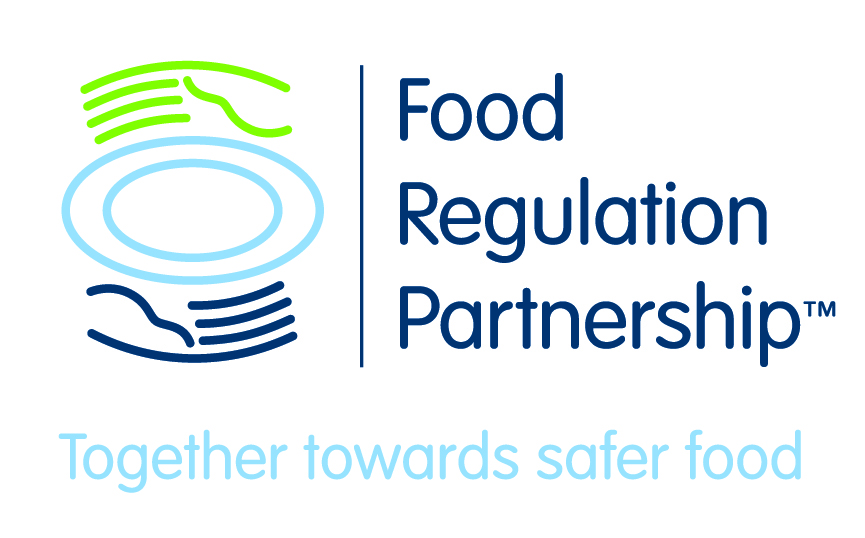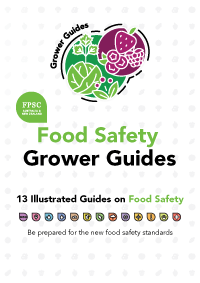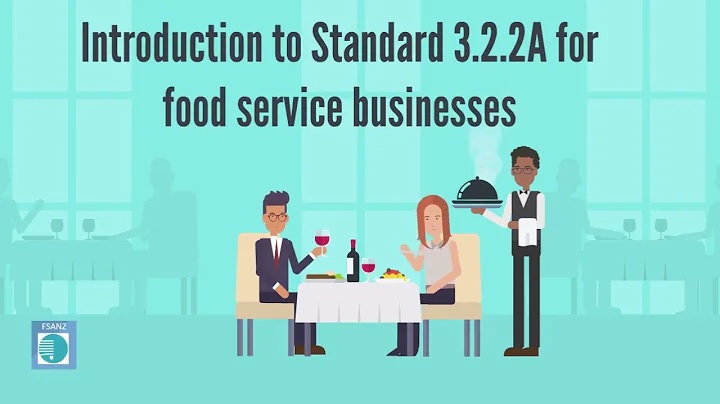
Food
Food Safety
Hawkesbury City Council is in partnership with the NSW Food Authority to ensure that food sold in retail outlets is safe for human consumption. Environmental Health Officers are empowered to inspect facilities selling food, and take action on businesses that do not comply with Australian Standards under the Food Act 2003.


Council can investigate complaints regarding unclean premises, poor hygiene and handling, or adulterated food. If you would like us to investigate a premises, please email council@hawkesbury.nsw.gov.au, use the Contact us form, or telephone our Customer Service team on Ph.(02) 4560 4444.
Important Notice for Food Businesses
The new Food Safety Standard 3.2.2A has come into force on 8 December 2023 which will effect most Hawkesbury food businesses. Businesses are expected to comply with the requirements in a reasonable timeframe. See the “New Food Safety Standard 3.2.2A” tab below for further information and links.
Food Borne Illness
All complaints of illness suspected to be related to a food business should be forwarded to the NSW Food Authority on Ph.1300 552 406 or by using the web form. This is because the food borne illness may have affected a range of other people. Food borne illness investigations can be conducted by NSW Food Authority, or by Council.
Food Inspection Program
Council's Environmental Health Officers are authorised under the Food Act to undertake “routine” inspections at any reasonable time of day. When an inspection is conducted, an Inspection Fee and an Administration Fee is charged in accordance with the detail provided in the NSW Food Act and Regulation. Note that all our staff will present their identification upon arrival, and a hard-copy Inspection Report is left at the site.
Where Environmental Health Officers consider that defects have the potential to impact Public Health, officers may decide to take regulatory action including a Notice under the Food Act, or a fine.
Food Registration
Under the Food Act and Regulation, it is the responsibility of food businesses to register with Council as a food business. All new businesses must ensure they are registered prior to the commencement of operation of the business. A new Registration Form should be completed when the address, proprietor or business name changes. Any businesses selling food from a mobile or temporary outlet should complete the Temporary Food Premises Form below.
Application for Food Premises Registration (57 KB)
Application for Temporary Food Premises Registration (63 KB)
Food Premises Design and Construction Requirements
All new food shops are to be constructed and fitted in such a way that they are sanitary, can be easily and effectively cleaned, and so they do not harbour vermin. All works to food premises must be undertaken in accordance with Food Safety Standard 3.2.3. A guide to the Standard can be viewed here.
Guidance on fitting out can be obtained from Australian Standard AS4674 (2004) – Design, Construction, and Fit-out of Food Premises. The Standard can be reviewed in various locations on the internet, or purchased from Standards Australia by telephoning 1800 035 822, or by visiting here.
If you are planning minor modifications to an existing food premises, you should always discuss this with an Environmental Health Officer first to ensure that the works are done correctly. Some modifications may require additional development consent. For example, where walls are removed, or where the dining room is expanded.
Any business activity conducted on Council’s footpath or other Council-owned land requires separate written consent. For example, signs and tables/chairs.
New Food Safety Standard 3.2.2A.
Food service, caterer and related retail businesses in NSW need to meet new food safety requirements in the Australia New Zealand Food Standards Code (the Code). The requirements apply to most businesses from 8 December 2023.
School canteens, children's services that supply food, supermarkets, greengrocers, delis, coffee vendors that sell food, correctional centres and boarding schools have until 8 December 2024 to comply.
Standard 3.2.2A aims to improve food safety by introducing 3 tools:
- Food Safety Supervisor (FSS)
- food handler training
- showing food is safe.
If you already have a current FSS, you will only need to ensure other staff who handle unpackaged, potentially hazardous food have appropriate skills and knowledge in food safety and hygiene. Higher-risk businesses must also be able to show they are managing key food safety risks.
For other businesses, all the requirements are new, such as for children’s services that supply food, school canteens, supermarkets, greengrocers, delis, coffee vendors that sell food, correctional centres, and boarding schools.
The requirements do not apply to the handling or sale of food for fundraising solely for community or charitable causes, providing food free to the community, or to businesses licensed with the Food Authority.
For more information, view the following web page at the NSW Food Authority webpage:- Standard 3.2.2A landing page.
Find out which Food Safety Management Tools apply to your business
Take the short quiz to find out which Food Safety Management Tools apply to your business, under the new Food Standards Code 3.2.2A.
The new requirements apply from 8 December 2023 for most businesses.
Food Handler Basics Training
Food Handler Basics is a free, non-accredited, online training course developed by the Food Authority. The course covers the basic knowledge requirements for food handlers in Standard 3.2.2A of the Food Standards Code. Participants work through 7 food safe handling modules, and an assessment at the end. Those who achieve a score of 100% can receive a certificate of acknowledgement. It is important to note that a certificate is not a proof of skills under the Food Standards Code and food handlers must also be able to demonstrate they know how to handle food safely in the food business.
Access the Food Handler Basics Training here.
Food Safety Training
Current food legislation requires all workers in the food industry to have adequate food safety "skills and knowledge" for their tasks of employment. Anyone who handles unpackaged, potentially hazardous, ready-to-eat food should have completed a food safety training course and have appropriate skills and knowledge of food safety and hygiene for their duties. This is to ensure that food is of a high quality and assist them in understanding their legal obligations. Skills and Knowledge are usually assessed when the business is inspected by Council’s Environmental Health Officers. Additionally, a person assigned as a Food Safety Supervisor is required.
A range of training options can be utilised, including internal training tailored to suit the business’s activities. If opting for a food safety training course, it must incorporate safe handling of food, food contamination, cleaning and sanitising of food premises and equipment, and personal hygiene.
Please see below for training options.
Food Safety Supervisor (FSS) requirements
Food businesses that handle “open food” must have a certified Food Safety Supervisor (FSS) present at all times and the FSS Certificate to be displayed in the shop. In most cases, this will mean that more than one person must be trained. FSS details will be checked as part of annual inspection by Council, and businesses that do not have a FSS risk a fine. Examples of businesses include restaurants, cafés, takeaway shops, caterers, bakeries, pubs, clubs, hotels and supermarket hot food sales.
A Food Safety Supervisor is a person who;
- is trained to recognise and prevent risks associated with food handling in a retail food business; and,
- holds a current FSS certificate that is no more than five years; and,
- is not an FSS for any other food premises or any other mobile catering businesses; and,
- can train and supervise other people who handle food to see that it is done safely.
Food Safety Supervisors must be trained in specific units of competency, and it must be done at a Registered Training Organisation approved by the NSW Food Authority. The training can be done face-to-face, online, in the workplace, by correspondence, or a combination of these. Details of this requirement and a list of approved training providers can be found here .
Statement of Attainment in Food Handling
The Food Handling Skillset SITSS00068 is a nationally accredited Unit of Competency that may be required by some workplaces. This is an approved course suitable for those working in the hospitality sector and includes SITXFSA005 Use Hygienic Practices for Food Safety. The course is offered by NSW TAFE, but if you are interested in this course you should see the wide range of Registered Training Organisations, and search the internet for : SITSS00068
New Food Handler online basics training course
Food Handler Basics training is a free, non-accredited, online training course developed by the NSW Food Authority. The course covers the basic knowledge requirements for food handlers in Standard 3.2.2A of the Food Standards Code. As the course is free and online, there’s little reason why all food business staff should not have completed this.
The online Food Safety Course run by the NSW Food Authority is available at the following link: https://www.foodauthority.nsw.gov.au/training/food-handler-basics-training
Participants work through 7 food safe handling modules, and an assessment at the end. Those who achieve a score of 100% can receive a certificate of acknowledgement. It is important to note that a certificate is not a proof of skills under the Food Standards Code and food handlers must also be able to demonstrate they know how to handle food safely in the food business.
Community organisations may like to contact Council’s Environmental Health Officer on Phone: (02) 4560 4444, or email council@hawkesbury.nsw.gov.au.
Non-accredited online resources
- Educational resource Food Safety Self Learning – Study the presentation and the included links
- Educational resources Basic Food Safety: Chapter 5 "Cleaning and Sanitizing"
- Educational resources Food Safety Training Video - This is a good interactive lesson where you need to spot the mistakes the food handler makes
Mobile Food Vendors
Mobile food vendors wanting to offer food in the Hawkesbury City Council area must have the written permission of the owner of the land where they intend to sell food. Generally, Hawkesbury City Council does not permit this type of activity on Council-owned land except for established events and markets. However, you may be able to operate on private property for example, so that it can be accessed from a footpath.
Mobile food vendors intending to sell food in Council's area must be Registered with Council by completing the Application for Temporary Food Premises Form here. Registration is for one year only and operators must be in possession of a current letter from Council which demonstrates the Registration. A registration fee will apply. Each vendor needs to have a Food Safety Supervisor available on site, with a copy if their certificate. Other food handlers should have completed the online NSW Food Authority Food Handler Basics training found here: https://www.foodauthority.nsw.gov.au/training/food-handler-basics-training
All mobile premises are required to maintain a file of all previous inspection reports, registrations, and training certificates available upon request.
Mobile food premises must comply with the NSW Food Authority's Guidelines for Mobile Food Vending Vehicles here.
Home-based Food Businesses.
Food is often prepared at home for sale in another location. If you prepare food at home, you should discuss your responsibilities with Council's Environmental Health Officers prior to commencing. You will also be required to Register the activity by completing an Application for Food Premises Form here.
The following are examples of where your home must be registered with Council as a home-based food premises.
- Preparing food for sale on the internet.
- Preparing food for sale at a charity event.
- Preparing food for sale at another person’s business. For example preparing cakes for a cafe, restaurant, or school canteen.
Note that only a certain amount of food may be prepared at home until planning consent from Council is required for operating a food business at home. You should discuss this with Council by phoning an Environmental Health Officer on Ph. (02) 4560 4444.
People considering the preparation of food at home should read the NSW Food Authority's Fact Sheet here.
Temporary Food Premises
- A stall in a carpark. For example a BBQ at a hardware shop.
- A stall at an established event or market.
- An event at a school or church, or a charity event, where stalls will sell food.
- The stall or event must be registered by completing the Application for Temporary Food Premises Form here. If the business prepares food at another location, this should be indicated on the form.
- There must be a Food Safety Supervisor available at the stall with a Certificate that is less than 5 years old.
- Other food handlers working in the stall should have completed the NSW Food Authority Food Handler Basics which can be accessed here.
- Ensure that the food operators comply with the requirements of the NSW Food Authority's Guidelines for Food Businesses at Temporary Events here.
Food Safety Grower Guidelines
 The Fresh Produce Safety Centre of Australia and New Zealand (FPSC) has recently developed 13 Food Safety Grower Guides to fill recognised gaps in industry resources for small growers. The guides provide key information and best practice guidance on food safety for fresh produce growers, from pre-harvest to post-harvest activities.
The Fresh Produce Safety Centre of Australia and New Zealand (FPSC) has recently developed 13 Food Safety Grower Guides to fill recognised gaps in industry resources for small growers. The guides provide key information and best practice guidance on food safety for fresh produce growers, from pre-harvest to post-harvest activities.
With the upcoming changes to regulations for leafy vegetables, berries and melons, these guides will also help growers adopt practices that will ensure compliance, and help food businesses understand the risks associated with the food that they select. Hawkesbury food businesses should note the Severe Weather Events, Cleaning and Sanitising, and Temperature Management guides.
The guides were developed as part of the Industry Outreach Strategy for Food Safety Standards initiative funded by the NSW Department of Primary Industries (NSW DPI) in 2022, and have been prepared in English, Arabic, Punjabi, Simplified Chinese, Traditional Chinese, and Vietnamese languages.
The guides can be accessed here.
![]()
Page ID: 157087

